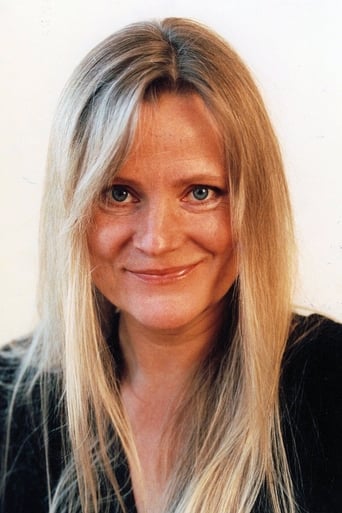Perry Kate
Very very predictable, including the post credit scene !!!
Stevecorp
Don't listen to the negative reviews
Lucia Ayala
It's simply great fun, a winsome film and an occasionally over-the-top luxury fantasy that never flags.
Mathilde the Guild
Although I seem to have had higher expectations than I thought, the movie is super entertaining.
Victoria Weisfeld
It was troubling to view Swedish director Jan Troell's 2012 film based on the experience of crusading journalist Torgny Segerstedt, so soon after the recent tragic assassinations at Charlie Hebdo in Paris. Segerstedt was editor-in-chief of one of Sweden's leading newspapers, and between 1933 when Hitler came to power and his own death in 1945, Segerstedt was a fierce opponent of Naziism, even though much of Sweden's leadership, including the king, was determined to remain neutral and out of the war. The struggle for journalists' right—some would say duty—to speak out despite risks to themselves and others has not ended. Beautifully played by Jesper Christensen, Segerstedt left himself open to criticism and to the devaluing of his motivations by his long affair with a Jewish woman, wife of his publisher. Hollywood's crusading journalists are noble and flawless (think All the President's Men), their presumed moral authority overshadowing any rough spots in their personalities, whereas Segerstedt's uncompromising character is pompous at times and unpleasant at others, he basks in his celebrity, and he's downright cruel to his wife. "Easy to admire, but very hard to like," said RogerEbert.com reviewer Glenn Kenny. Truth told, he loves his dogs best. Producing this film in black and white may have symbolic significance or may be just the preferred Scandinavian style—the film is Swedish, after all. In another Bergman-like touch, Segerstedt sees and converses with the black-clad ghosts of his mother and other women. Slow-moving, like the clear stream (of words?) against which the opening and closing credits appear, there is only a fleeting soundtrack to support the action. The film left me with a lot of unanswered questions. What happened with his writing? When the authorities demanded that a particular edition not be distributed because of its anti-Nazi editorial (which suggests they had imposed some censorship regime), Segerstedt printed it with a big white space where the editorial would have been. Nice. But we never learn whether he was allowed to continue writing after that (or how he was stopped) until a scene that takes place years later. How did the war affect the Swedish people? There's little hint of that, beyond putting up blackout curtains. It seems they had electricity, they had food, petrol, champagne at New Year's. It's primarily the awareness of Nazi behavior that the viewer brings to the film that explains and justifies both Segerstedt's simmering outrage and his country's policy of appeasement. He and his mistress both have suicide plans, if it came to that, but in the absence of any tangible, on-screen threat, their preparations seem self-dramatizing and almost childish. Segerstedt in a sense provides his own epitaph, which is also the Swedish title of the movie—"Judgment on the Dead"— based on a line from a famous Old Norse poem, which says the judgment on the dead is everlasting. History's judgment on Segerstedt would be that he was of course right about the Nazis. And if, as the King believed, it would have been his fault if the Germans invaded the country, he would have been among the first to die. NPR's Ella Taylor called the film "A richly detailed portrait of a great man riddled with flaws and undone by adulation."
maurice yacowar
Two kinds of evil are analyzed in Jan Troell's The Last Sentence.The first depicts Swedish journalist Torgny Segerstedt's (Jesper Christensen) crusade against Hitler. As editor of an economic daily he campaigned against Hitler and for Sweden's going to war against Nazi Germany. Segerstedt contends that acquiescence to evil only nourishes it. We are responsible for what we allow, not just what we do. Despite the Swedish king's probably correct judgement that Germany and Russia would destroy the Swedish army in a fortnight, Segerstedt sticks to his campaign. His move from Scandinavian concern to the wider European is evidenced when his new bulldog Winston succeeds the poisoned Soren (a Kierke-guard dog?). As we know, Hitler's early sweep was facilitated by the surrender and compromises of state heads who lacked Segerstedt's courage and clarity. In this respect the film reflects upon the current debate over how to deal with the rise of jihadist-based anti- Semitism, in which the Scandinavian countries are very much in the vanguard. How "neutral" was Sweden in WW II and what was its effect? What cost neutrality or acquiescence now?The second moves from the political evil which Segerstedt addresses to the personal evil which he embodies. This fiery journalist is a surprisingly unimpressive man, an academic still obsessed with having failed his thesis (on the origin of polytheism), who has been essentially made by the women to whose spectres he turns after their deaths -- his mother, his wife, his wealthy Jewish intellectual mistress. Despite his open adultery he seems so insecure in his manhood that he keeps two huge mastiffs and the massive bulldog. www.yacowar.blogspot.com
stensson
Jan Troell is the nestor of Swedish films. He's been directing for 50 years and bringing on Torgny Segerstedt is of course an interesting choice of subject. Segerstedt was one of few journalists who completely stood up against Hitler during WW2. A story of courage in a special way, since Sweden never took part in the war.So this could have been a discussion about common political morals, but instead it's a discussion about Segerstedt's private life and most of all his mistresses. Of course you can make a movie that way, if it has a substance referring to the man's work, but this isn't the case here. It's more about anybody's love life.And there isn't any magic about it. The work should be bigger than the man than it comes to somebody like Segerstedt.
xym07
Saw it at Busan International Film Festival(BIFF), and it was the most disappointing film of the weekend.In fact Torgny Segerstedt's story, in which an anti-Nazi journalist became a political martyr, is quite fascinating. His relationships with women are also intriguing drama material. In addition to those good ingredients, the director Jan Troell had one more ambition: making this film as a journey to the mind of Mr. Segerstedt, rather than a bland and harmless biography. What could go wrong?First of all, making a black and white period piece with digital cameras(Arri Alexa) was not a good idea; especially when you start your film with real archive films filled with gritty film grains. The images here lack any depth of field, resulting in images which are crisp and dull at the same time. The whole feature felt like a cheap TV reenactment of the actual events, rather than an artistic reinterpretation.The script is not good as well. Without some fantasy elements based on a Bergman tradition, the whole feature consists of a series of important events in the protagonist's life. The timing is always off; things just come and go without proper investments. Most of all, even though it is based on the real events during World War 2, there is no sense of dread or grief.Even though Jesper Christensen's performance was stellar, I cannot recommend this film. It is a film made with good intentions, but fails to live up to them.4/10





